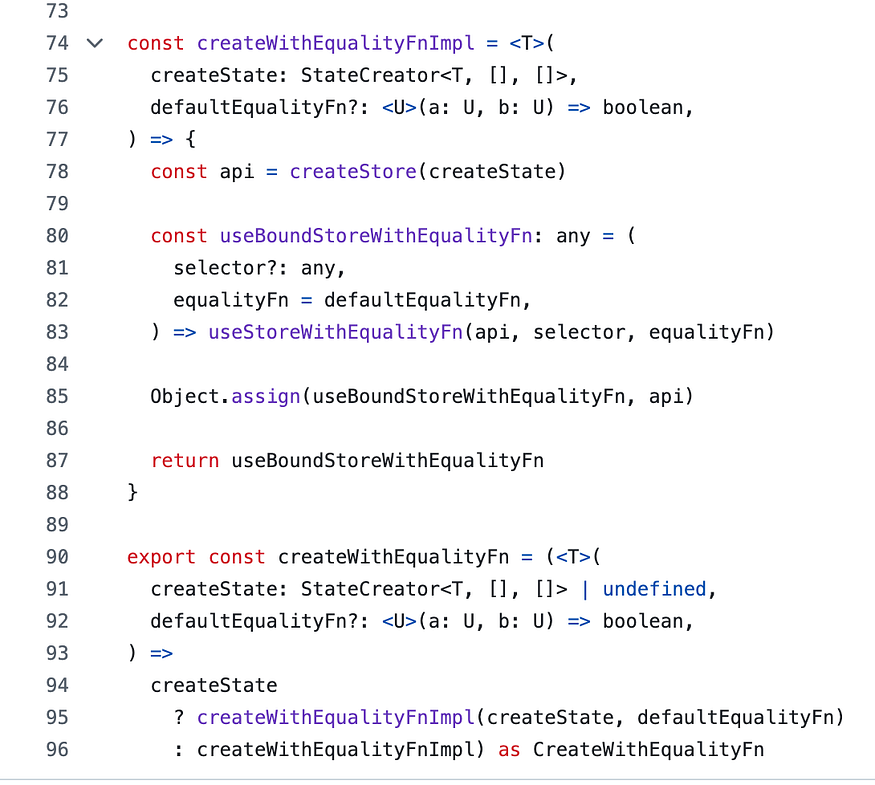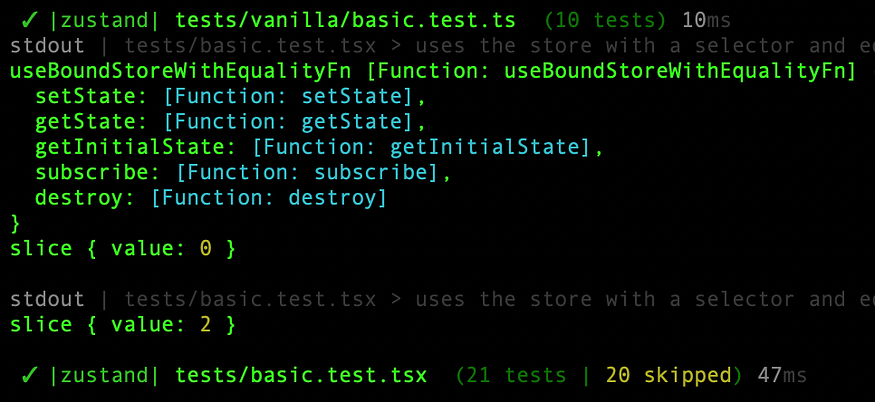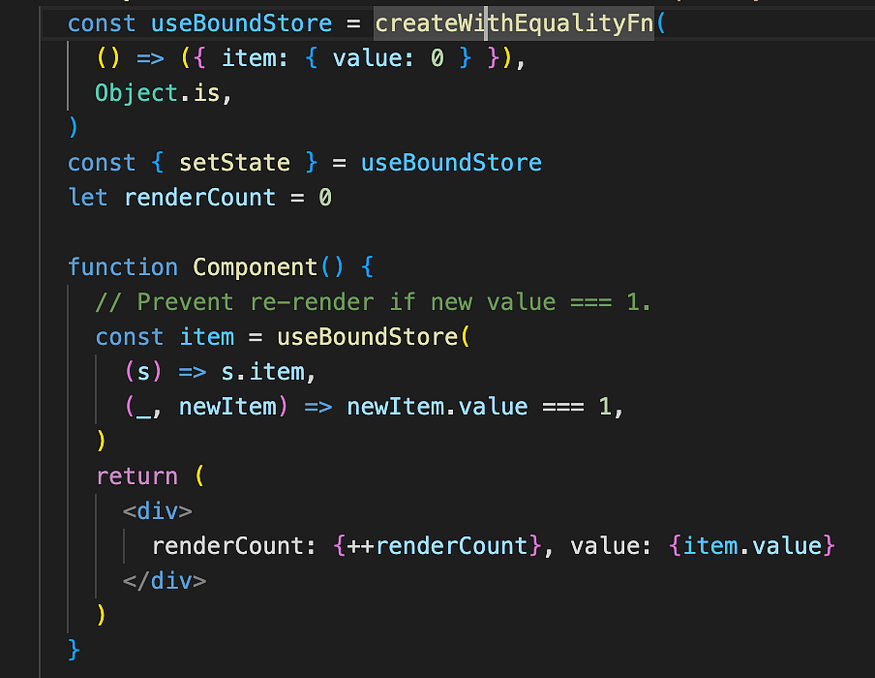createWithEqualityFnImpl in Zustand source code explained.
In this article, we will analyse how the createWithEqualityFnImpl is implemented by logging some of its value to get a better understanding.

As you can tell from the above image, createWithEqualityFn calls the function createWithEqualityFnImpl. This pattern is used in vanilla.ts as well as demonstrated below:
export const createStore = ((createState) => createState ? createStoreImpl(createState) : createStoreImpl) as CreateStore
createStore calls createStoreImpl and createWithEqualityFn calls createWithhEqualityFnImpl.
Before we jump into the execution of createWithEqualityFn, let’s first understand the purpose of using createWithEqualityFn.

The above screenshot is from https://github.com/pmndrs/zustand/tree/main
You can use createWithEqualityFn to have more control over re-rendering.
createWithEqualityFn
const createWithEqualityFnImpl = <T>( createState: StateCreator<T, [], []>, defaultEqualityFn?: <U>(a: U, b: U) => boolean, ) => { const api = createStore(createState) const useBoundStoreWithEqualityFn: any = ( selector?: any, equalityFn = defaultEqualityFn, ) => useStoreWithEqualityFn(api, selector, equalityFn) Object.assign(useBoundStoreWithEqualityFn, api) return useBoundStoreWithEqualityFn }
useStoreWithEqualityFn
export function useStoreWithEqualityFn<S extends ReadonlyStoreApi<unknown>>( api: S, ): ExtractState<S> export function useStoreWithEqualityFn<S extends ReadonlyStoreApi<unknown>, U>( api: S, selector: (state: ExtractState<S>) => U, equalityFn?: (a: U, b: U) => boolean, ): U export function useStoreWithEqualityFn<TState, StateSlice>( api: ReadonlyStoreApi<TState>, selector: (state: TState) => StateSlice = identity as any, equalityFn?: (a: StateSlice, b: StateSlice) => boolean, ) { const slice = useSyncExternalStoreWithSelector( api.subscribe, api.getState, api.getInitialState, selector, equalityFn, ) useDebugValue(slice) return slice }
This is an overloading function. useStoreWithEqualityFn has 3 definitions:
export function useStoreWithEqualityFn<S extends ReadonlyStoreApi<unknown>>( api: S, ): ExtractState<S> export function useStoreWithEqualityFn<S extends ReadonlyStoreApi<unknown>, U>( api: S, selector: (state: ExtractState<S>) => U, equalityFn?: (a: U, b: U) => boolean, ): U export function useStoreWithEqualityFn<TState, StateSlice>( api: ReadonlyStoreApi<TState>, selector: (state: TState) => StateSlice = identity as any, equalityFn?: (a: StateSlice, b: StateSlice) => boolean, ) {

Let’s see how the slice value looks like:

value: 1 is skipped because we set the code to avoid re-render when the value is 1 as shown below:

About me:
Hey, my name is Ramu Narasinga. I study large open-source projects and create content about their codebase architecture and best practices, sharing it through articles, videos.
I am open to work on interesting projects. Send me an email at ramu.narasinga@gmail.com
My Github — https://github.com/ramu-narasinga
My website — https://ramunarasinga.com
My Youtube channel — https://www.youtube.com/@thinkthroo
Learning platform — https://thinkthroo.com
Codebase Architecture — https://app.thinkthroo.com/architecture
Best practices — https://app.thinkthroo.com/best-practices
Production-grade projects — https://app.thinkthroo.com/production-grade-projects
